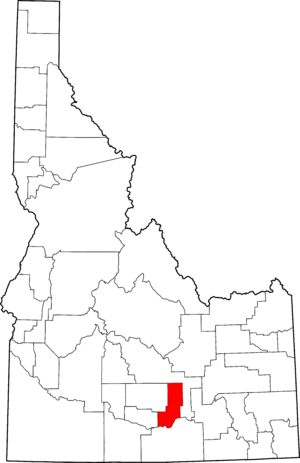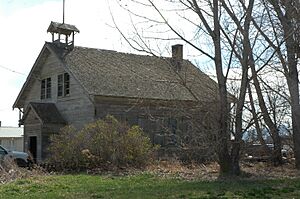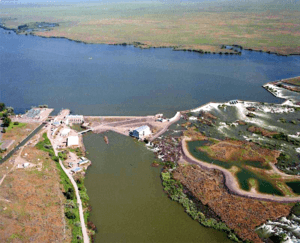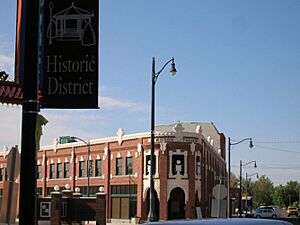National Register of Historic Places listings in Minidoka County, Idaho facts for kids
Welcome to Minidoka County, Idaho! This page tells you about some special places here that are listed on the National Register of Historic Places. This is like a national list of important buildings, sites, and objects that are worth saving because of their history.
These places help us remember the past and understand how people lived long ago. In Minidoka County, there are three main spots that have been added to this important list. More places can be added over time, so this list might grow!
Contents
Historic Places in Minidoka County
Minidoka County is home to some really interesting historic sites. Let's explore them!
Empire School: A Historic Classroom
The Empire School is located in Rupert. It was added to the National Register of Historic Places on May 30, 2001. This old school building reminds us of how children learned in the past. It's a great example of the kind of schools built in the early 1900s. Imagine what it was like to go to school here many years ago!
Minidoka Dam: Powering the Past
The Minidoka Dam and Power Plant is a very important structure located south of Minidoka. It was listed on the National Register on October 29, 1974. This dam was built a long time ago to help control the water from the Snake River. It also creates electricity, which was a big deal when it was first built! The dam helped bring power and water to farms and towns in the area, helping the region grow.
Rupert Town Square: A Community Hub
The Rupert Town Square Historic District is a special area in the heart of Rupert. It was added to the National Register on January 17, 2001. This district includes several blocks around the town square, roughly bounded by 7th Street, E Street, 5th Street, and F Street.
The town square itself is a unique design, shaped like a circle. Many important buildings, like the historic Wilson Theatre, are found around this square. This area has been the center of community life in Rupert for many years, where people gather, shop, and enjoy events. It shows how towns were planned and grew in the early 1900s.





